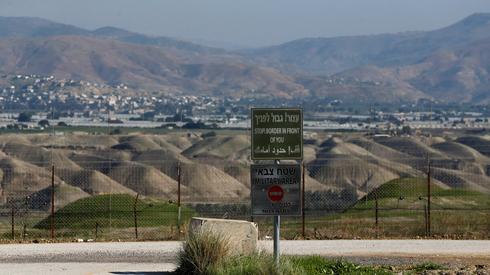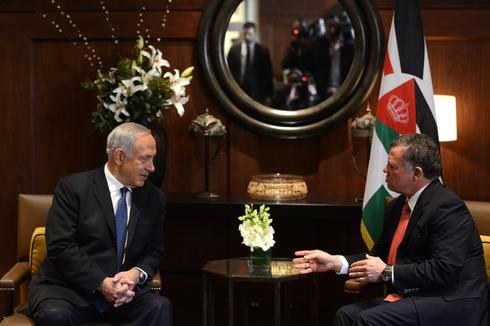Opinion: By annexing parts of the West Bank, Israel would put the Hashemite Kingdom at risk of an influx of Palestinians and it should protest such unilateral move at all costs
While the world focuses its attention on the coronavirus pandemic, Prime Minister Benjamin Netanyahu struck a deal with his political rival Blue & White Chairman Benny Gantz to form a coalition government.
This agreement clears the way for Israel to annex parts of the West Bank and the Jordan Valley.

What would be the ramifications of such a move on the peace process, and what would become of the treaties and alliances signed between Arab nations and Israel, and is it now time to reexamine those treaties?
In 1991, when Arab leaders went to the Madrid Peace Conference, their intent was to take back the Golan Heights and occupied Jordanian lands to Arab hands.
They hoped to end the Israeli occupation of the West Bank, liberate East Jerusalem, and ultimately establish an independent Palestinian state.
After failing to return the land captured in the 1967 Six-Day War by military force, these leaders hoped to liberate their territory through a peace process and under the auspices of the international community.
That was the purpose of the Madrid Conference, the Oslo accords, and the Israeli-Jordanian peace treaty. That was also the reason for the 2002 Arab peace initiative. The goal was always the establishment of a viable Palestinian state.

Now, after Israel had decided to annex more Palestinian land, further reducing the chances of such a state being established, the peace process has become nothing more than an illusion. So, what is the point in the Oslo accords or the peace treaty between Jordan and Israel?
Israel would be in violation of many of the conditions specified in the peace treaty if it were to go through with its intent to annex parts of the West Bank.
The second clause of the agreement, for example, notes that the parties recognize each other’s sovereignty, territorial integrity, and independence and would respect it.
Another clause stipulates that both sides would not allow one-sided steps that could result in the movement of Palestinians into Jordan.
By annexing parts of the West Bank, Israel would be acting against Jordanian national interests because the elimination of any probability for a Palestinian state constitutes a direct threat to Jordanian independence and sovereignty.

The Jordanian government must clarify to both Netanyahu and Gantz that by annexing land, Israel would be placing both the Jordanian kingdom and the Israeli-Jordanian peace accords at risk and that Jordan would not allow such an affront.
King Abdullah must lead an intense diplomatic effort, appealing to the most powerful bodies such as the American Congress, the UN, and the EU to educate them on move’s the ramifications for the Hashemite Kingdom.
If these efforts won’t bear fruit, and Israel goes ahead with its annexation plans, the international community would, at the very least, be aware of the desire of the region’s nations for peace as well as the effect that unilateral Israeli annexation would have on the entire Middle East.
As far as the Jordanian response to the proposed annexation, it would not be limited just to condemnation or to a diplomatic downgrading of relations. It would be much more dramatic.

At this point, there is no need to take any steps vis-a-vis the peace treaty between the two countries, but I do call for a reevaluation of Jordan’s position towards its neighbor.
The move would clearly resonate in all aspects of the relationship, including economic agreements, such as Jordan’s purchase of natural gas from Israel and other financial and security aspects.
The Arab world would not stand on the sidelines if Israel moves to annex the Jordan Valley, West Bank settlements, and parts of East Jerusalem.
As reported by Ynetnews
